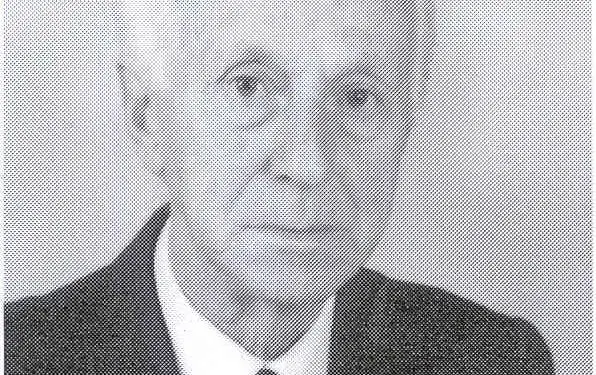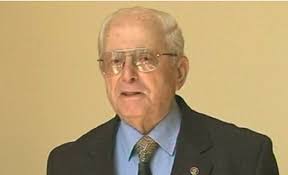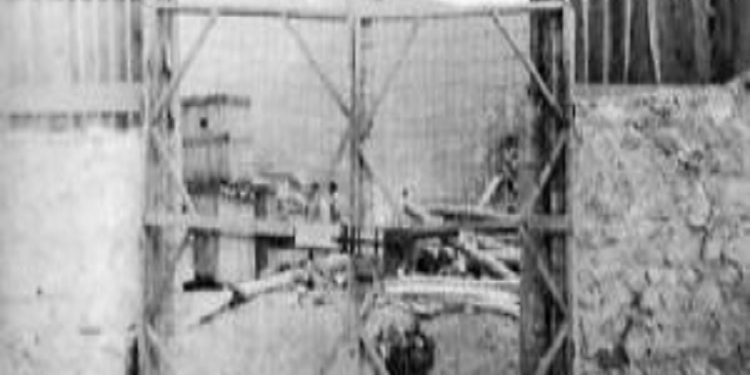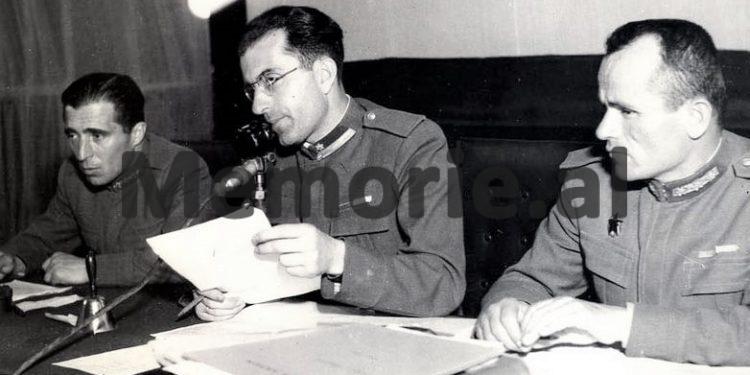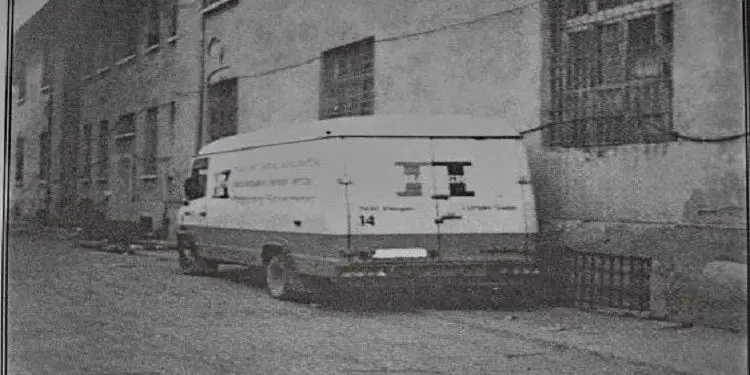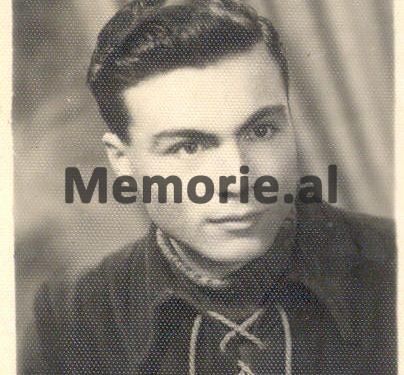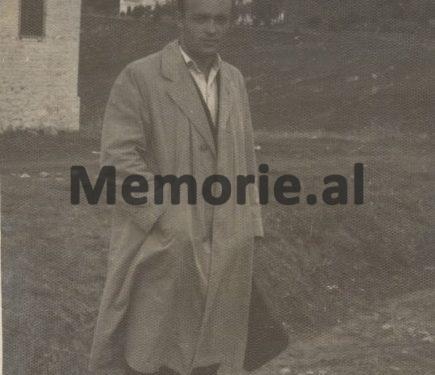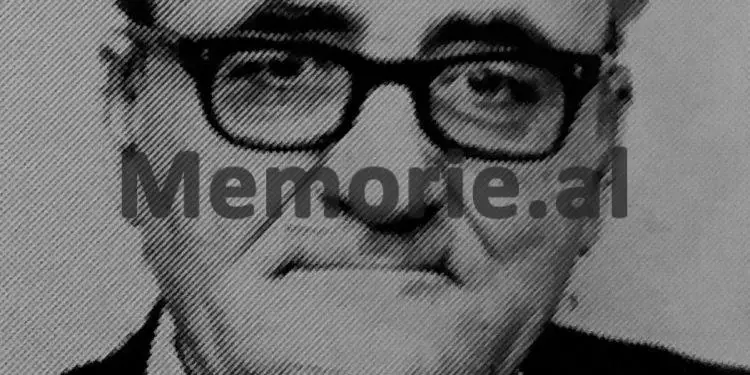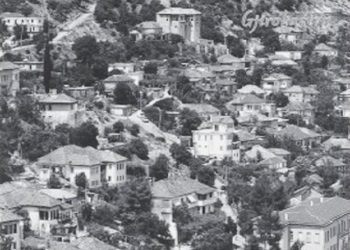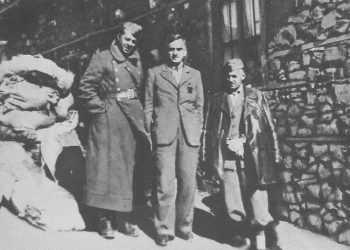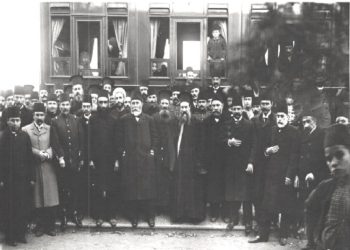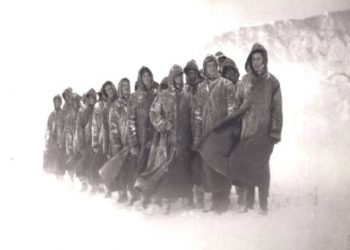From Agim Musta
Part thirteen
Memorie.al / On the fourth anniversary of the passing away of the well-known historian, researcher, writer and publicist Agim Musta, (July 24, 2019), former political prisoner, his daughters Elizabeta and Suela, gave him the right to exclusivity for the publication, by the online media Memorie.al, of one of the author’s most prominent publications, such as the ‘Black Book of Albanian Communism’. This work contains numerous data, evidence, facts, statistics and arguments unknown to the general public, on communist crimes and terror in Albania, especially against intellectuals, in the period 1945-1991. The publication for the first time of parts of this book is also the realization of one of the bequests of the historian Agim Musta, who, from the beginning of 1991 until he passed away, for nearly three decades was engaged with all his powers, working to raise collective memory, through book publications and publications in the daily press. All that voluminous work of Mr. Agim Musta, concretized in several books, is a contribution of great value to the disclosure of the crimes of the communist regime of Enver Hoxha and his successor, Ramiz Alia. A good part of the publications of Mr. Agim Musta, is also translated into English. Thanking the two daughters of the late Musta, who chose Memorie.al, to commemorate their father, from today we are starting the publication, part by part, of the “Black Book of Albanian Communism”.
Continues from last issue
– Forced labor camps-prisons, everywhere in Albania-
(1945-1991)
“Pain Road”
In those autumn days of 1960, when we thought that something big would happen in Albania, in my house in Tirana, on “Mihal Duri” street, no. 25, gathered: Uran Kalakula, Riza Kuçi, Tanush Kaso, Karaman Paftali and me. After a long analysis of the internal situation, we decided to create a clandestine social-democratic group.
In this meeting, it was considered to drop a tract, where a call would be made to the people, for the overthrow of the hated communist dictatorship and to make contacts with anti-communist elements, who had political views close to ours. We met with Pjetër Arbnor, who at that time had a clandestine group in Durrës, and decided to merge our two groups. This union was made only after the Military Court of Tirana, that the activity was denounced and its members were arrested. The investigative group M.P. of the Interior, you had reserved cell no. 26, in the old prison of Tirana.
A guard opened the door and contemptuously threw an old blanket, all bloodstained, at me. With a heavy lisp, he began to explain to me the rules of the cell, adding after each word; “did you know”?! Later I learned that this was Capt. Velua, a prison guard, from the beginning of 1945, whose words and looks, rather made you laugh than scare you.
The cell was a tomb above the ground, where a dim light came from a small window. On the floor and on the four walls, if you looked carefully, you could see the names and toponyms of people who had passed through that cell, in the execution squads, in the dark prisons or in the forced labor camps. The smell of urine was suffocating in the cell, because the detainees urinated through the holes in the floors, because according to the regulations, the guards did not take them to the toilet more than twice during 24 hours.
In those tense circumstances for the detainee, the kidneys were the most affected organs, while the hearing reached the highest degree of perfection. Every four hours, day and night, every time the guards changed, the cell door would be slammed open and the detainee would be subjected to a minute search, from the anus to the hair.
Those sentenced to death were kept in cells with handcuffs on their legs and hands behind their backs. The accompanying guard took him to the investigation offices, which were adjacent to the cells, tied with German handcuffs and held tightly by the arm. The investigators never used the names of the arrested, but the numbers of the cells where they were located.
The captain, who stood guard at the investigator’s door, would take the order from him and shout in the corridor of the cells: “Bring me the 32”! The thirty-two was taken to the investigator’s office and sat on the concrete chair. embedded in concrete). The first thing the investigators did was denigrate the arrested person, using the filthiest insults about him and his family members.
These insults were accompanied by punches in mugs, kicks in the legs and genitals, ruler on the head, bottles of paint on the forehead, firewood on the back and everything they had on the desks and around the office. One day, my interrogator, Major Llambi Titani, a former apprentice shoemaker, with five primary grades, took me to the torture chamber.
There were hooks, to hang people, iron lockers, where they were put in and kept for days, iron beds, where the victim was tied and tortured with red-hot iron or hot oil, barrels of cold water and pieces of ice. , where they put the arrested naked, nail clippers, electric chairs, where electroshock sessions took place, ampoules with kerosene and other medications, to depersonalize the defendant.
In short, that room was an arsenal of torture devices, from the most primitive to the most modern. The investigator, the executioner, told me in a threatening and boastful tone, that in that place of torture, many “enemies of the people” had given their lives, that a similar fate awaited me, if I did not open my mouth. One day I was interrogated by the chief investigator of the Republic, General Nevzat Haznedari, one of the most vocal executioners of the communist dictatorship, whose feats and tragedies are innumerable.
He was accompanied by a pack of jackals and lakens, who stood near the end of the office. As a result of my answer, which did not go well with him, he shot me in the head with the blade of the ruler. Drowning in blood, I fell to the floor unconscious. The marks of the ruler remain on my forehead, although more than four decades have passed. During the investigation, along with the food, drugs were given to the arrested to damage their nervous system. I have felt for many years, the effects of those greedy drugs, from which many convicts have suffered permanent psychic trauma.
One July night, the General Prosecutor, the inquisitor Aranit Çela, came to inspect the cells of the Tirana prison. Those arrested complained about the torture they were subjected to by the executioner investigators. I complained to you, about the torture they did to us with the ban on drinking water, in those hot summer days, but he, with the ferocity of a wolf, answered me: “love and water, take the enemies of the Party?! Don’t want and beer”? Haven’t you found out that in Albania, the Dictatorship of the Proletariat rules, which breaks your teeth and molars”?! to leave the arrested. This is how the Attorney General defended the law!
At the end of July 1962, they gave me the indictment, where I was accused under article 64, for “high treason” and article 73, for “agitation and propaganda” in the group. Among other things, I was accused of “wanting to overthrow the popular government, by creating the Social-Democratic group”. God knows how we would overthrow those hateful police regime, when they had nothing else but crayons.
The height of cynicism was the interest of the investigators to appear before the court in new suits, except that our pants had no buttons, no belts and we were forced to hold them with our hands, so as not to fall to the ground. The punishments were predetermined by the investigation and often, the investigators told us, without a hint of shyness, that the trial is formal, that they had both the nut and the tongs in their hands. Only in this case, they weren’t lying. They did not tell us to appoint the defense lawyers, but the investigator appointed them himself, without obtaining our consent at all.
On August 7, 1962, accompanied in a “Gaz” by state insurance officers, handcuffed from behind, the policemen holding us by the arms, they put us in the car-jail and took us to the Tirana court. We would be tried by the Military Court of Tirana, with the president, Colonel Llazi Polena, a former sugarcane, with primary education.
Since the establishment of the communist dictatorship, Colonel Llazi Polena had given hundreds of death sentences, leaving many mothers without sons, wives without husbands, sisters without brothers and children without parents. He had rewarded “Mother Party” as he should, the position she had given him, to this ignorant scumbag. The prosecutor was Major Sami Kapllani, identical to Llazi Polena. At the door of the court, my mother was waiting for me, standing like a woman, without batting an eyelash. When our group approached the door, she addressed us with these words: “Don’t be afraid”!, “Stay like men! The people know that you have done nothing wrong.”
The Security officers rushed at her with all their ferocity, saying: “Shut up, you evil old woman! Now, let’s throw the bars and disappear from the face of the earth”! The mother looked at them with disdain and, turning her back, pronounced loudly; “Language be yours”! The trial took place behind closed doors and there were only M.P. officers in the room. of the Interior and functionaries of the Party-State. At the door of the hall, there were two policemen and two Security officers. They didn’t even allow our families to listen to the proceedings of the trial.
The indictment was drawn up using standard phrases used in staged trials of “Enemies of the People”. The wording was more or less like this: “They have propagated against the Labor Party and the People’s Power. They have denied the great achievements of the People’s Republic of Albania, in the political, economic and social fields. They have propagated the bourgeois way of life. They have vomited bile against socialist realism They slandered the leaders of the Party and the Government. They wanted to create the Social-Democratic Party. They wanted to call on the people for an uprising to overthrow the People’s Government. They wanted…”!
And other slanderous fictions, borrowed from dizzying communist propaganda, that the defendants paid for with their heads and very long prison terms. We accepted what we had done, and we rejected the other accusations. The trial continued for four days and on August 11, 1962, Colonel Llazi Polena read the verdict. Uran Kalakula and Pjetër Arbnori were sentenced to death, while the others were sentenced to over 10 years in prison. After a month, they were pardoned, returning the sentence of 25 years in prison.
Portraits of fellow sufferers
Teacher, friend and co-sufferer
On a warm October day in 1962, for the first time after the sentence, I went out to the prison yard in Tirana. Crowds of prisoners, of all ages, were making peace. Bone and skin people, with crushed faces, dressed in rags patched with all kinds of colors, dragged their tired legs with difficulty. In the windows of the second floor, where the prison directorate was located, you could see groups of investigators and Security officers, who with cynical smiles, showed each other their victims.
Among the prisoners, my attention was drawn to a short man with thick myopic glasses, wearing a towel shaped like an Indian turban on his head. He looked like an intellectual who had suffered a strong psychic trauma. When I happened to be near him, he stopped and carefully observed me from head to toe. He questioned me in a surprising way and after a few minutes he asked me:
“Aren’t you Dawn? Do you know me?” – and continued to stare at me with a look full of fear. It was impossible to recognize this man transformed into a half-human and half-animal being. Only the timbre of his voice was human. and familiar to me. I had heard this voice a long time ago, for a long time. By its peculiar timbre this voice had been fixed in my mind, and, although many years had passed, I recognized it. This was the voice of my teacher of of literature, Gjergji Komninos. Gjergji Komnino, my elegant teacher at the “Qemal Stafa” gymnasium in Tirana, how did they turn you into a scarecrow?! How did they transform you into a scarecrow! Who are those “Kompraçikos” of the 20th century! What a joke what have you done against you?! What could you have done, oh human soul, that they have taken revenge so cruelly?”?! I could hardly gather myself and asked him in a trembling voice when he had been punished and how much.
– “I was sentenced to death in 1956. Six months eating like a dog, in a manger, six months with hands and feet tied with irons, six months urinating in a toilet, six months….. He tried to straighten his hands, but in vain. Gone, I told him. No, he told me with irritation, there is no past or forgotten! Dictatorship has been, is and will be, as long as Satan is alive”! “No, Gjergj, everything has an end and the end is coming,” I told him.
I gave him some cookies that my family had brought me. He ate them with his jaws, because there were no teeth left in his mouth, no molars. I didn’t want to bore him with questions. I would have time to learn his tragedy. The few days I stayed in Tirana prison, I learned from him that he had worked at the Institute of Sciences, in the folklore department.
He had been denounced by a relative and arrested for a report he had drawn up about the real situation in the country. It was a chronicle, a black chronicle, but true. His work as a folklore collector had given him the opportunity to know Albania well, from south to north, from west to east. He had left no one without meeting and no one without entering. As a participant in the National Liberation War, he was disappointed.
As an idealist he was completely disillusioned. “Everything is a lie, behind the scenes, a trap, anti-national, anti-human right from the beginning and it continues, continues” and ended the conversation with the exclamation: “Until when, O filth, O hell, until when, O curse”?! His eyes flashed and his chin quivered. I spent several years suffering from one prison to another with Gjergji. He did not remove the turban from his head and the bookcase from his neck.
Through the forced labor camps, the guards constantly harassed him and looked down on him as lazy, that; “eats government soup in vain”. He carefully hid from their prying eyes and never stopped philosophizing with his fellow sufferers about Kant, Voltaire, Bacon, Pirandello, with whom he had defended his degree at the University of Zagreb, something that many of them did not understand and some vagabonds even tried to make fun of him.
Suffered 15 years of imprisonment, without aid, only with prison soup, from one camp to another, building “works of socialism”. He was released at the end of 1971, at the age of 53. The “people’s” government did not provide him with a job or a pension. They sheltered him in an abandoned room, where what fell outside, came in. He hid like Diogenes in his den.
The first author of the voluminous monograph on our national poet Naim Frashëri used to come out only at night, to collect papers in the trash cans. After the collapse of the communist dictatorship in Eastern Europe, it had become very lively. For no moment did he stop mingling with people of all ages and professions.
He spoke about justice, humanity, and truth. His “favorite lecture” were policemen. He begged them like Christ not to use violence, and made even the most fanatics be humbled. He enthusiastically went to participate in the student hunger strike in February 1991, but they rejected his request, due to his advanced age (74 years old).
With all the money he had left, he went to the nearest post office to send a telegram of solidarity to the strike committee. Three days before he left the country, he came to my house. He had drawn up a program for the Association of Former Prisoners, Internees and Political Persecuted.
His eyes were shining and the timbre of his voice was louder than ever. I had never seen him so dynamic. “We are the real opposition – he told me, – and we are not few, but tens of thousands, hundreds of thousands. We and our children must hold the flag of freedom and democracy, since we gave our lives, youth and everything for freedom and democracy. We, who were persecuted, imprisoned, tortured, shot and scattered like ravens on the five continents. We…” – and he spoke and spoke with a fire that made me doubt that he had not been touched again. from some mental crisis.
I tried to calm him down, letting him know that the association was being formed and its affairs were going well. We parted amicably, as always. Not even five days later, I was stunned in front of the television screen, when Rai-Uno was giving the 11 pm news. In those days there was a mass exodus from Vlora and Durrës. Gjergji’s face appeared on the screen, being interviewed by an Italian journalist. He spoke with his head and hands about Albania. He spoke as he knew how, among that crowd of refugees.
O George, brother! What kind of psychological pressure were you under when you returned your arms to the Motherland, which you loved so much?! Did they remember the handcuffs, the tortures, the garbage cans? Don’t you think of the saying of San Zhysti: “An oppressed people has no homeland at all?”. Did he set out as a missionary to show his mother’s wounds to the Arbëresh brothers? I am sure of one thing, my long-suffering teacher, that wherever you are, you will remain an ardent patriot. Memorie.al
The next issue follows




